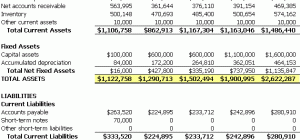 Customers are becoming more and more informed, while always expecting an outstanding service and this has turned the online space customer-powered. 2015 has been so far a very challenging year for online retailers. Not only they have to constantly adapt to the continuously changing customer needs in order to keep customers happy, with the highest level of service but it is essential for them to always stay alert to keep up with the latest technologies available and stay on top of competition.
Customers are becoming more and more informed, while always expecting an outstanding service and this has turned the online space customer-powered. 2015 has been so far a very challenging year for online retailers. Not only they have to constantly adapt to the continuously changing customer needs in order to keep customers happy, with the highest level of service but it is essential for them to always stay alert to keep up with the latest technologies available and stay on top of competition.
The problem eCommerce stores face from accounting over multiple EU territories
The World has moved on since retailers only had to manage a single channel operating in a single location. For omnichannel businesses working across Europe, there can be literally hundreds of different business processes generating sales data which needs to be accounted for.
Each of these may operate underneath a different tax regime and a different cost structure - meaning not only calculating the revenues, but profits per stock keeping unit (SKU) can become a highly complex task.
Making sense of this complexity also becomes increasingly vital as increased retail competition across most product types has reduced the profit margins per sale. In order to stay in business, retailers need to be able to buy in the optimal quantities and sell at the optimal price.
A system of understanding the real-time value of each SKU to the business, its demand and its available supply therefore becomes a competitive advantage.
Why this problem may increase
One of the attractions of ecommerce business is the low marginal cost of targeting new locations. In a matter of a few days a businesses can set-up new websites to speak to new countries. In addition, globalised infrastructure businesses mean that cross-Europe delivery and payments systems can be easily arranged. However, as the technological barriers decrease, the regulatory ones can increase.
Across the World, different countries are attempting to meet the challenge of taxing online businesses in different ways. This has led to a disparate set of new tax policies, often built upon existing varied ruled.
In a recent survey by Omnichannels.uk, over 50% of SME, ecommerce businesses asked, were exploring new overseas territories to sell to.
However over 80% of these do not feel that they have an adequate understanding of the regulations and tax issues in those locations - therefore do not know how their business performance may be affected by the tax regimes in those locations.
The solution
Doing business in the face of multiple and changing regulations will always be a challenge. When this is combined with changing sales platforms and customer behaviour, this complexity will represent an increasing problem.
This is particularly true for ecommerce retailers, where bringing in experience can be expensive and eat into margins. This problem is compounded for SME's who may simply not afford to bring in experts.
An answer lies in further technology - cloud platforms updated by central experts, which can automatically account for sales in multiple locations. As regulations change, the cloud providers automatically update their systems with the new policies - enabling multiple businesses to benefit from a single source of expertise
However, they need to be robust to take care of this "many channels in many locations problem". A market leading example of an enterprise standard omnichannel solutions is SuiteCommerce by NetSuite.
The above information was sourced in partnership with NetSuite Omnichannel Retail Site.







